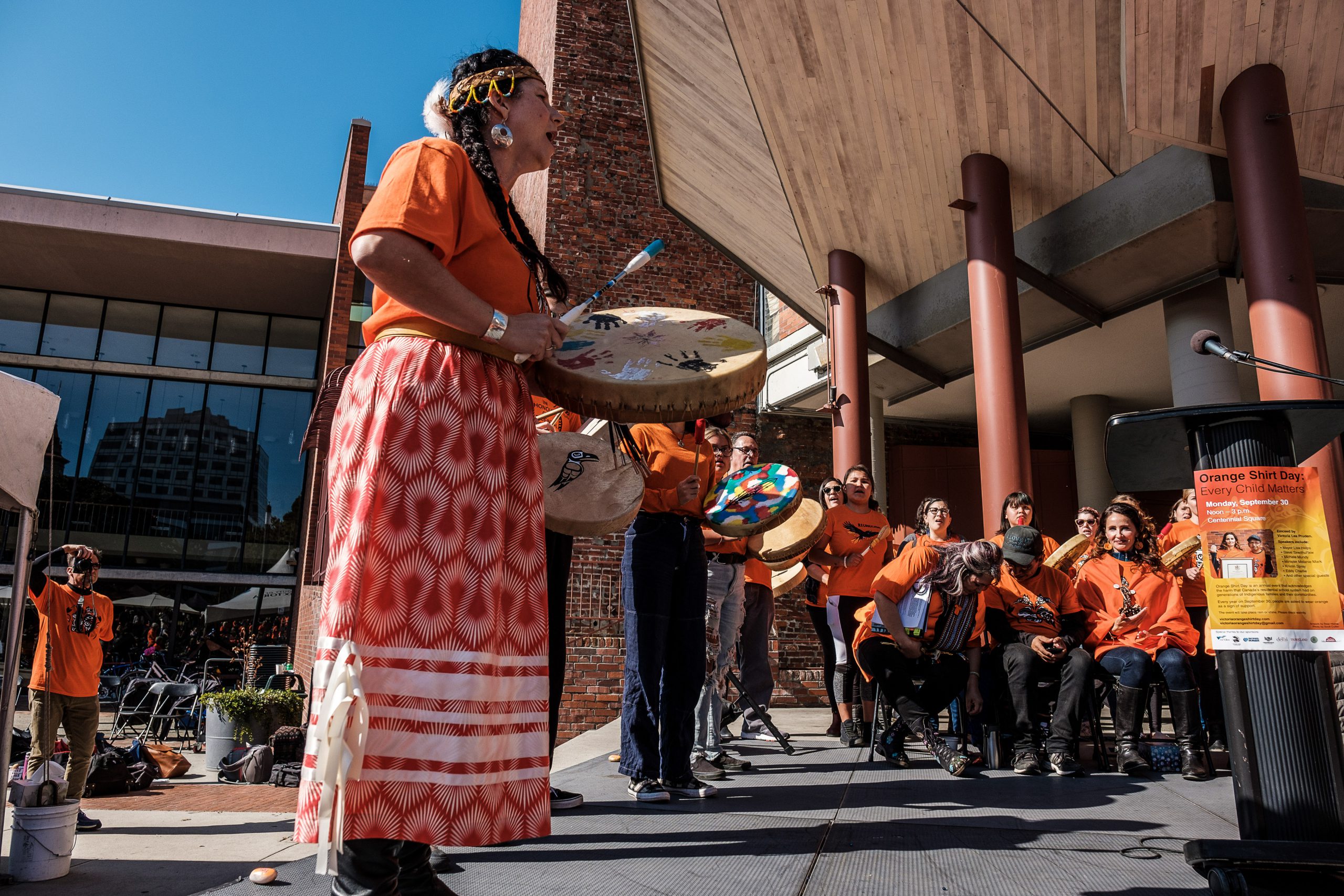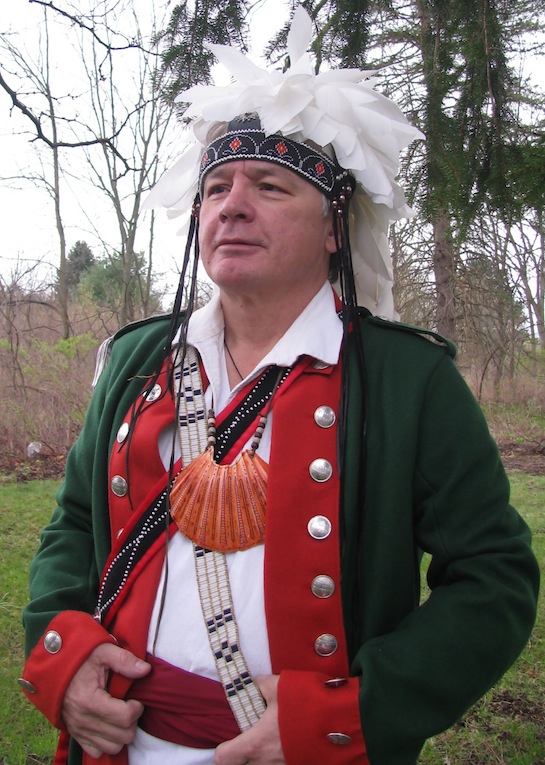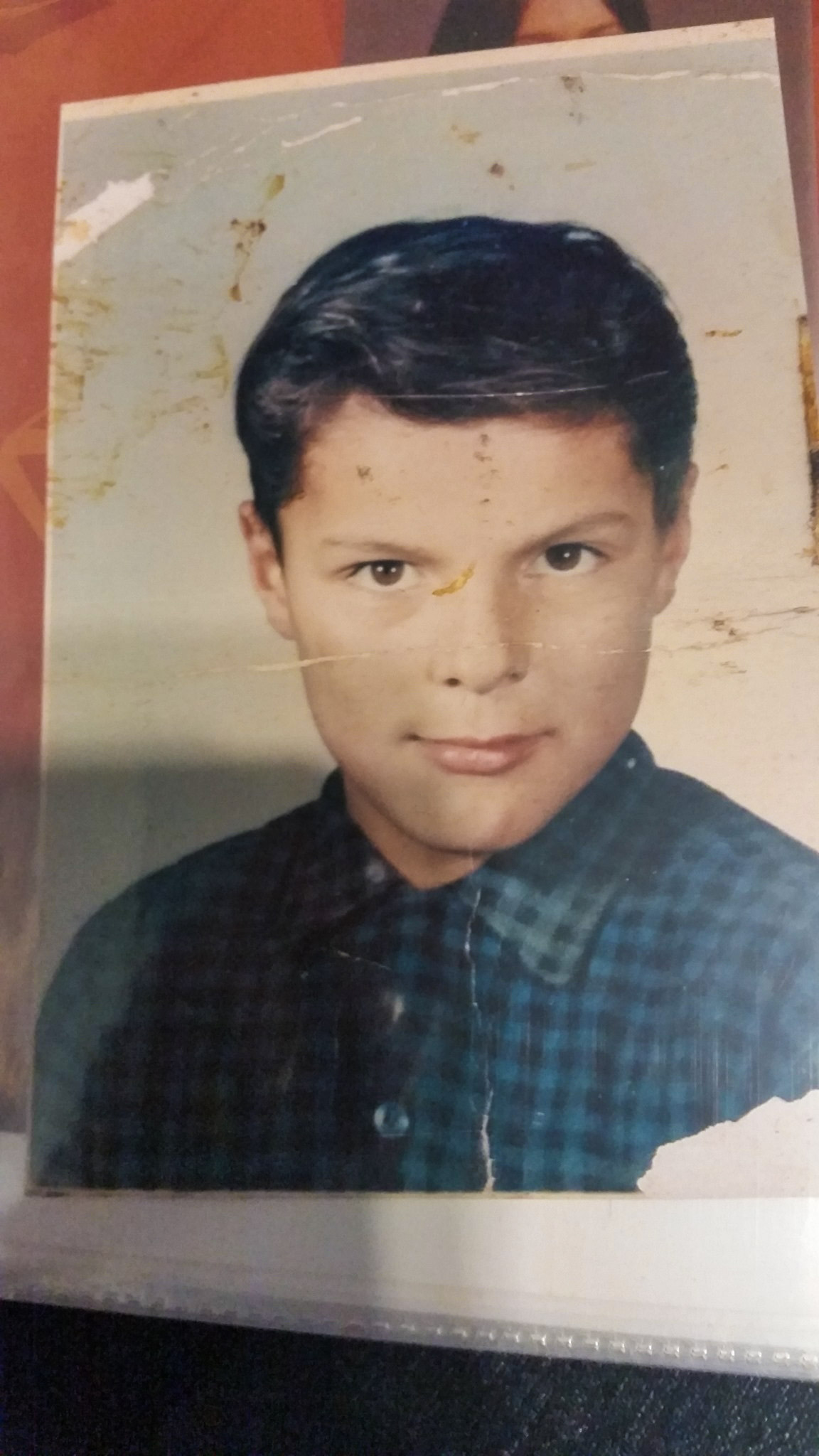Indianz.Com > News > Doug George-Kanentiio: Wearing orange for Native residential school survivors

Photo: Provincial Government of British Columbia
Why Wear Orange?
Monday, August 23, 2021
People ask why the residential-boarding school survivors, their respective families and supporters wear orange. This began in 2013 when Phyllis Jack-Webstad of the Stswecem’c Xgat’tem Nation recalled when she was stripped of her orange shirt when she was taken to a residential school; it has since become a symbol of defiance across the nation.
I asked Mohawk faithkeeper (Roterihonton) Kevin Deer if this must remain so. He said we can turn the color into goodness if we see orange in a different way. Orange, he said, is the color of fire, it is the source of heat during the cold season and light in the dark of night. It is what cooks our food, provides us with comfort and in its flames are the stories of our ancestors who gathered around fire not only for warmth but to socialize, to remember, to dance and sing.
Our wampum is the symbolic fire of the people and each longhouse has its own council fire. Fire has its own life; it breathes oxygen as we do, it can also sing, cackle and roar. The old-timers would always “feed” the fire before they ate by casting a morsel of their meal into the flames. Fire was also emotional and demanded respect, it can be cultivated and spoken to. Fire is a way to reach into the spirit world when tobacco, sage or sweetgrass is given to it.

Doug George-Kanentiio, Akwesasne Mohawk, is a residential school survivor. He was given the number 4-8-2-738. He serves as the
vice-president of the Hiawatha Institute for Indigenous Knowledge. He previously served
as a Trustee for the National Museum of the American Indian, is a former land
claims negotiator for the Mohawk Nation and is the author of numerous books and
articles about the Mohawk people. He may be reached via e-mail at:
Kanentiio@aol.com or by calling 315-415-7288.
Search
Filed Under
Tags
More Headlines
Native America Calling: Delays in tribal food, Farm Bill disputes and more on The Menu
Shoshone-Bannock Tribes report ‘cybersecurity attack’ on operations
United Keetoowah Band expands control of health care programs
Native America Calling: The ongoing battle against a persistent surge of syphilis
First Peoples Fund opens applications for grants and fellowship programs
Tanka Fund launches ‘Bringing the Buffalo Home’ video series
Bureau of Indian Affairs solicits proposals for tourism grants
Albert Bender: The theft of tribal land in Oklahoma
Cronkite News: New policy bars border agents from trashing personal property
Native America Calling: Anarchy and Native American political activism
Montana Free Press: Tribes battle pollution from mining operation across the border
DVIDS: Havasupai Tribe requests evacuation following flood emergency
Native America Calling: The dance form that rose from the streets to the Olympics
Indian Health Service observes World Water Week
Idaho Capital Sun: Tribes contribute $1.45 billion to economy
More Headlines
Shoshone-Bannock Tribes report ‘cybersecurity attack’ on operations
United Keetoowah Band expands control of health care programs
Native America Calling: The ongoing battle against a persistent surge of syphilis
First Peoples Fund opens applications for grants and fellowship programs
Tanka Fund launches ‘Bringing the Buffalo Home’ video series
Bureau of Indian Affairs solicits proposals for tourism grants
Albert Bender: The theft of tribal land in Oklahoma
Cronkite News: New policy bars border agents from trashing personal property
Native America Calling: Anarchy and Native American political activism
Montana Free Press: Tribes battle pollution from mining operation across the border
DVIDS: Havasupai Tribe requests evacuation following flood emergency
Native America Calling: The dance form that rose from the streets to the Olympics
Indian Health Service observes World Water Week
Idaho Capital Sun: Tribes contribute $1.45 billion to economy
More Headlines
